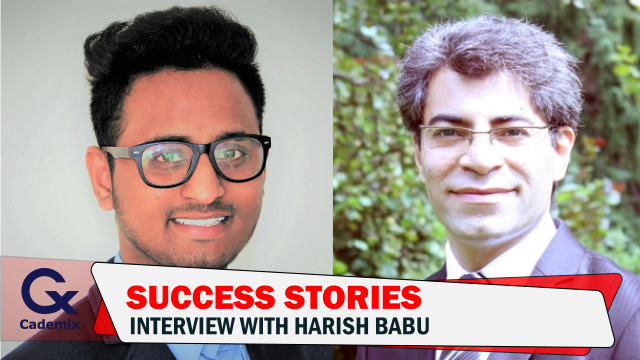Cademix Institute of Technology, Vienna, Austria | +43 650 967 7080 | info@cademix.org


Cademix Institute of Technology
Job seekers Portal for Career Acceleration, Continuing Education, European Job Market
People also visited:
Client Inquiry Guidelines: Setting Expectations for Response Times
Comparison Of The European Fertilizer Consumption With The Middle East
Workplace Probationary Period in Europe: 2024 Update Guide for International Job Seekers
Self-Care Tips for Professionals: Maintaining Eye Health with Regular Eye Check Ups
How AI is Shaping Mobile App Development
Design, Programming, and Commissioning of Industrial Control Software Using PLC Systems: A Practical...
Mastering Job Interviews with AI and GPT-4: Tips and Techniques for Success
Comprehensive Eye Care: A Complete Guide to Maintaining Healthy Vision
Career Oriented Postdocs
KI-gestütztes SEO: Nutzung künstlicher Intelligenz für optimale Suchmaschinenleistung
Cheapest Eye Exam Near Me: Understanding the Sociological and Psychological Impacts
KI-gesteuerte prädiktive Wartung in Hochspannungsstromsystemen
Rural Entrepreneurship
Comprehensive Guide to Developing Interview Skills: How to Prepare and Succeed in Job Interviews
Prescription Colored Contact Lenses: Combining Aesthetics with Vision Correction
Exploring Ophthalmology: Comprehensive Eye Care from Diagnosis to Treatment
Exploring Specsavers Optometrist Jobs: Opportunities, Responsibilities, and Benefits
How GPT-4o Enhances Text, Voice, and Vision - GPT-4 Capabilities
Career Guidance Essentials for International Students and Graduates
3D Printing Business Overview by Javaid Butt
Nursing Ausbildung vs. University Pathway in Germany: Choosing the Right Route
The Death of Fact-Checking? How Major Platforms are Redefining Truth in the Digital Age
Global Impact of Plastics and Its Recycling
The Synergy of Human Skills and GPT-4o: Maximizing AI Potential
People also visited:
Cademix Certified Network
Open AI: Pioneering the Future of Artificial Intelligence
Vertical Farming with Artificial Light: Review and Future Advancement
Spare Parts Management in Refinery
Understanding Your Eyeglass Prescription: A Comprehensive Guide
Innovative Techniques in Interior Design: Combining Functionality and Aesthetics
How CRM Enhances the Trust Quadrant of Content Matrix in 2025
The New Standards of Digital Content Responsibility: Why Users Must Take the Lead
Comprehensive Guide to ATS Friendly Resume Templates: How to Optimize and Use Them Effectively
Comprehensive Guide to Walk In Interview: How to Prepare, Succeed, and Make a Strong Impression in W...
Pharmaceutical challenge: the non-alcoholic hand sanitizer
New Pioneer in 5G and IoT: European Tourism Industry
How do Ion-Selective Electrodes Regulate Diseases? A Comprehensive Review
Rural Entrepreneurship
Focus Dailies 90: A Simple Guide for Kids on Daily Contact Lenses
Freiberuflicher Architektenjob, Design und Geld verdienen
Scalability of SEO Strategies in Online Platforms
Improving Communication Skills with GPT-4o: Applications for Real-Time Personal and Professional Gro...
Bridging the Skill Gap in PIC Engineering: Continuing Education Strategies for Quantum Computing Pro...
Optometry: A Comprehensive Guide
The Cognitive Biases Behind Misinterpreting Job Offers
Growing in Sawdust: Alternative Planting Medium in Vertical Farming
Tape-Out Procedures and Layout Optimization in PIC Design: KLayout and Foundry Integration
AI Image Generation: Advanced Techniques for Optimizing Prompts in ChatGPT and MidJourney
